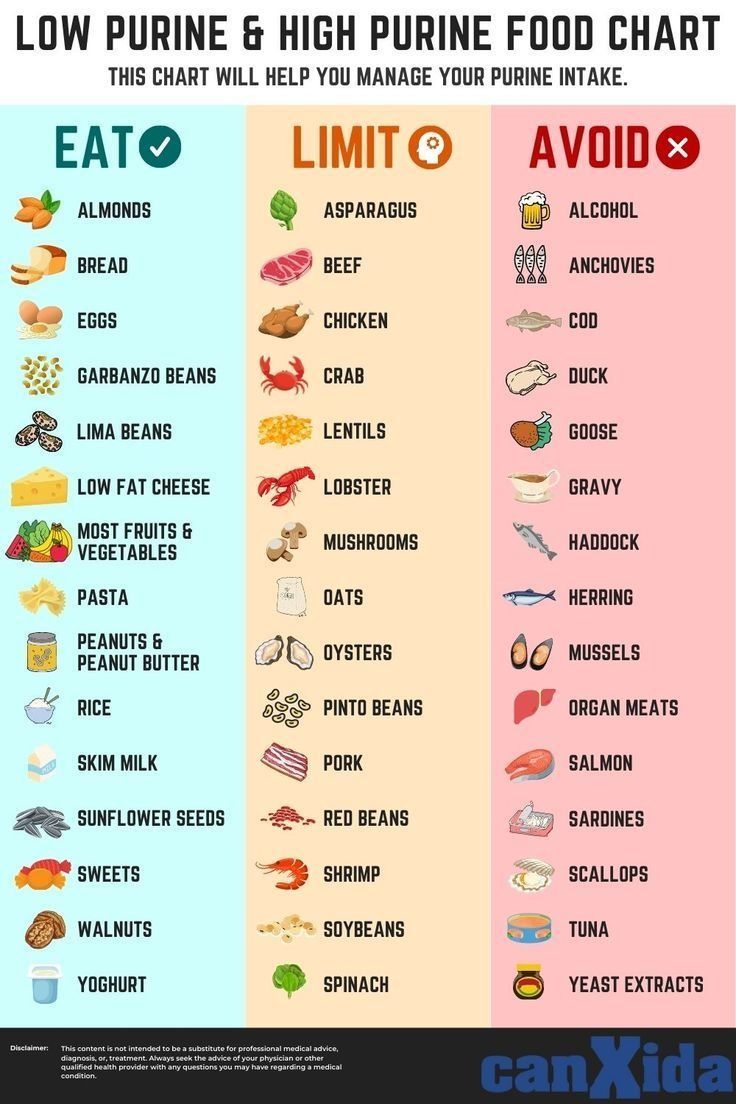The Nutty Nectar: Hazelnut Milk’s Journey from Obscurity to Essential Well-being
In the ever-evolving landscape of plant-based nutrition, where culinary innovation meets a growing consciousness for health and sustainability, one creamy contender has quietly, yet resolutely, claimed its rightful place: hazelnut milk. Far more than a fleeting trend or a mere dairy substitute, this luscious, subtly sweet beverage offers a symphony of essential vitamins and minerals, embarking on a remarkable journey from the ancient groves of Corylus avellana to the heart of our daily well-being. This is not just a nutritional breakdown; it is the story of a humble nut, transformed into a vital elixir, and its profound impact on human health.
The Genesis of a Delight: From Grove to Glass
Our story begins in the ancient lands of the Mediterranean, particularly Turkey, Italy, and Spain, where the hazelnut tree, Corylus avellana, has thrived for millennia. Revered in various cultures for its rich flavor and robust nutritional profile, the hazelnut has long been a staple, appearing in everything from celebratory feasts to traditional medicines. It is from this venerable lineage that hazelnut milk draws its inherent strength.
The process of creating hazelnut milk is deceptively simple, yet it unlocks a world of flavor and nutrition. Hazelnuts are typically soaked to soften them and enhance nutrient availability, then blended with water and strained, separating the creamy liquid from the fibrous pulp. While the straining process reduces the fiber content found in whole hazelnuts, it yields a smooth, palatable milk that serves as an excellent canvas for fortification, transforming it into a powerhouse of essential micronutrients.
For the knowledgeable audience, understanding this origin is crucial. The inherent qualities of the hazelnut—its unique fatty acid profile, its natural vitamin E content—form the bedrock upon which the fortified product builds. Without the foundational integrity of the nut itself, the subsequent additions would lack the holistic synergy that makes hazelnut milk such a compelling choice.
The Foundational Profile: Beyond the Creamy Texture
Before delving into the specific micronutrients, it’s important to grasp the baseline nutritional profile of unsweetened hazelnut milk. Typically, a single serving (around 240ml) offers:
- Low Calories: Generally lower than dairy milk, making it a suitable option for calorie-conscious individuals.
- Healthy Fats: This is where hazelnut milk truly shines. Rich in monounsaturated fatty acids (MUFAs), particularly oleic acid, similar to olive oil. These healthy fats contribute to satiety and are beneficial for cardiovascular health.
- Low Protein: Naturally, hazelnut milk is not a significant source of protein compared to dairy or soy milk. This is a key consideration for those relying on plant milks for protein intake, necessitating complementary protein sources in the diet.
- Low Carbohydrates (Unsweetened): When unsweetened, its carbohydrate content is minimal, making it suitable for those monitoring sugar intake or following lower-carb diets.
- Minimal Fiber: Due to the straining process, most of the dietary fiber from the whole nut is removed.
This foundational profile sets the stage. While naturally lower in protein and fiber than its whole nut counterpart, the magic of hazelnut milk, particularly commercially available varieties, lies in its strategic fortification, turning it into a vibrant mosaic of essential vitamins and minerals designed to support optimal human well-being.
The Pantheon of Vitamins: Unveiling Hazelnut Milk’s Micronutrient Treasures
The true story of hazelnut milk’s nutritional prowess is told through its generous contribution of vitamins. While some are naturally present, many are carefully added through fortification, transforming it into a reliable source for those seeking a dairy-free alternative.
1. Vitamin E (Alpha-Tocopherol): The Antioxidant Guardian
Here, the hazelnut’s natural bounty takes center stage. Hazelnuts are an exceptionally rich source of Vitamin E, primarily in the form of alpha-tocopherol. This potent fat-soluble antioxidant is a cornerstone of cellular protection.
- Role in Well-being: Vitamin E acts as a formidable shield against oxidative stress, neutralizing free radicals that can damage cells and contribute to chronic diseases, aging, and inflammation. It is crucial for maintaining healthy skin, protecting it from UV damage and supporting its barrier function. Furthermore, Vitamin E plays a vital role in immune function, helping the body defend against pathogens. Its cardiovascular benefits are also well-documented, contributing to healthy blood flow and preventing the oxidation of LDL cholesterol.
- Hazelnut Milk’s Contribution: Even after processing, hazelnut milk retains a significant amount of Vitamin E, making it a valuable dietary source, especially for those who may not consume nuts regularly. This inherent quality gives hazelnut milk a distinct advantage over some other plant milks.
2. B Vitamins: The Energy Catalysts and Neurological Navigators
This group of water-soluble vitamins is crucial for myriad bodily functions, particularly energy metabolism and nervous system health. While some B vitamins are naturally present in hazelnuts, commercial hazelnut milks are almost universally fortified with a comprehensive spectrum of B vitamins, addressing common dietary gaps, especially in plant-based diets.
-
Vitamin B1 (Thiamine): Essential for converting carbohydrates into energy and for proper nerve function.
-
Vitamin B2 (Riboflavin): Plays a key role in energy production, cellular growth, and maintaining healthy eyes and skin.
-
Vitamin B3 (Niacin): Important for DNA repair, energy metabolism, and can play a role in cholesterol regulation.
-
Vitamin B6 (Pyridoxine): Involved in over 100 enzyme reactions, including protein metabolism, neurotransmitter synthesis (like serotonin and dopamine), and immune function.
-
Vitamin B9 (Folate/Folic Acid): Crucial for cell division, DNA synthesis and repair, and red blood cell formation. It is especially vital during periods of rapid growth, such as pregnancy, to prevent neural tube defects.
-
Vitamin B12 (Cobalamin): This is perhaps the most critical B vitamin in fortified plant milks, particularly for vegans and vegetarians. B12 is predominantly found in animal products and is essential for nerve tissue health, brain function, and the production of red blood cells. Without adequate B12, individuals can suffer from fatigue, weakness, and neurological issues. Fortification ensures that hazelnut milk provides a reliable, non-animal source of this indispensable vitamin.
-
Hazelnut Milk’s Contribution: Through fortification, hazelnut milk becomes a potent delivery system for these vital co-enzymes, ensuring that those who choose plant-based alternatives do not miss out on these foundational nutrients.
3. Vitamin D: The Sunshine Vitamin’s Ally
Often dubbed the "sunshine vitamin," Vitamin D is critical for bone health, immune function, and overall well-being. However, dietary sources are limited, and sun exposure is often insufficient, leading to widespread deficiency.
- Role in Well-being: Vitamin D’s primary role is to regulate calcium and phosphate levels in the body, which are essential for strong bones and teeth. It also plays a significant role in modulating the immune system, reducing inflammation, and may even influence mood and cognitive function.
- Hazelnut Milk’s Contribution: Like many plant milks, hazelnut milk is typically fortified with Vitamin D (often D2 or vegan D3 from lichen). This makes it an excellent non-dairy source of this crucial nutrient, particularly important for those who avoid dairy or have limited sun exposure.
4. Vitamin A: Vision and Immunity’s Cornerstone
While not as universally fortified as Vitamin D or B12, some hazelnut milk varieties also include Vitamin A (often as Beta-carotene).
- Role in Well-being: Vitamin A is vital for maintaining healthy vision, especially in low light. It also plays a critical role in immune function, cell growth and differentiation, and skin health.
- Hazelnut Milk’s Contribution: When fortified, hazelnut milk can contribute to your daily Vitamin A intake, adding another layer of nutritional benefit.
The Mineral Matrix: Hazelnut Milk’s Earthly Gifts
Beyond vitamins, hazelnut milk, both naturally and through fortification, offers a spectrum of essential minerals, each playing a unique and indispensable role in maintaining the body’s intricate balance.
1. Calcium: The Architect of Bones and Beyond
Perhaps the most recognized mineral associated with milk, calcium is paramount for structural integrity and physiological function.
- Role in Well-being: Calcium is the primary building block of bones and teeth, providing their strength and rigidity. But its role extends far beyond skeletal health. It is crucial for muscle contraction, nerve transmission, blood clotting, and hormone secretion. Maintaining adequate calcium intake is vital at all life stages, from childhood bone development to preventing osteoporosis in older age.
- Hazelnut Milk’s Contribution: Since natural hazelnut milk contains minimal calcium, commercial varieties are heavily fortified with calcium carbonate or tricalcium phosphate, mirroring the levels found in dairy milk. This makes fortified hazelnut milk an excellent, bioavailable source of calcium for those who cannot or choose not to consume dairy.
2. Magnesium: The Unsung Hero of Metabolism
Hazelnuts are naturally a good source of magnesium, and this benefit translates, albeit in smaller amounts, to hazelnut milk.
- Role in Well-being: Magnesium is a true workhorse, involved in over 300 biochemical reactions in the body. It’s critical for muscle and nerve function, blood glucose control, blood pressure regulation, and the synthesis of protein, bone, and DNA. It also plays a role in energy production and is essential for maintaining a steady heartbeat. Magnesium deficiency is surprisingly common and can manifest as fatigue, muscle cramps, and anxiety.
- Hazelnut Milk’s Contribution: While not as concentrated as in whole hazelnuts, the magnesium present in hazelnut milk contributes to your daily intake, supporting these myriad metabolic processes.
3. Phosphorus: The Energy Currency Partner
Another mineral vital for bone health and energy, phosphorus works in close conjunction with calcium.
- Role in Well-being: Phosphorus is the second most abundant mineral in the body and is a key component of bones, teeth, and DNA/RNA. It is also crucial for energy metabolism, forming part of ATP (adenosine triphosphate), the body’s primary energy currency.
- Hazelnut Milk’s Contribution: Hazelnuts naturally contain phosphorus, and many fortified hazelnut milks add it, further enhancing its bone-building and energy-supporting properties.
4. Potassium: The Electrolyte Balancer
Potassium is an essential electrolyte that plays a pivotal role in maintaining fluid balance and electrical activity within the body.
- Role in Well-being: It is crucial for proper nerve signaling, muscle contractions, and maintaining a healthy heart rhythm. Potassium also helps to counteract the effects of sodium, contributing to healthy blood pressure regulation.
- Hazelnut Milk’s Contribution: Hazelnuts contribute some natural potassium, which is preserved in the milk, offering a small but valuable contribution to electrolyte balance.
5. Manganese: The Antioxidant Co-factor
Hazelnuts are particularly rich in manganese, a trace mineral with significant enzymatic roles.
- Role in Well-being: Manganese is a crucial co-factor for several enzymes, including superoxide dismutase (SOD), one of the body’s most powerful intrinsic antioxidants. It is also involved in bone formation, metabolism of carbohydrates, amino acids, and cholesterol.
- Hazelnut Milk’s Contribution: The natural manganese content of hazelnuts means that hazelnut milk, even in its processed form, provides a beneficial amount of this trace mineral, bolstering the body’s antioxidant defenses.
6. Copper: The Iron Utilizer
Another trace mineral, copper, is essential for several vital functions.
- Role in Well-being: Copper is critical for iron metabolism and red blood cell formation, ensuring oxygen transport throughout the body. It also plays a role in energy production, connective tissue formation, and the function of the nervous and immune systems.
- Hazelnut Milk’s Contribution: Hazelnuts contain copper, and thus hazelnut milk contributes to the intake of this important mineral.
7. Zinc: The Immune System’s Enforcer
Zinc is a trace mineral vital for immune function and numerous enzymatic processes.
- Role in Well-being: Zinc is indispensable for a robust immune system, wound healing, DNA synthesis, and cell growth. It’s also crucial for maintaining the senses of taste and smell.
- Hazelnut Milk’s Contribution: While not a primary source, the zinc naturally present in hazelnuts adds to the overall mineral profile of the milk.
Beyond the Nutrients: Holistic Health Benefits and Synergies
The true narrative of hazelnut milk’s contribution to well-being isn’t just about individual nutrients; it’s about their synergistic action. When combined, these vitamins and minerals create a powerful elixir that supports multiple facets of health.
-
Cardiovascular Health: The monounsaturated fats (MUFAs) are the stars here, known for their ability to lower LDL ("bad") cholesterol and raise HDL ("good") cholesterol. This, coupled with Vitamin E’s antioxidant protection against arterial plaque formation, and the blood pressure-regulating effects of magnesium and potassium, positions hazelnut milk as a heart-healthy choice. It’s a silent guardian, working behind the scenes to keep your circulatory system flowing smoothly.
-
Bone Density and Strength: The robust fortification with calcium and Vitamin D, supported by phosphorus and magnesium, makes hazelnut milk an excellent ally for skeletal health. For individuals avoiding dairy, particularly growing children, adolescents, and post-menopausal women, this fortified milk offers a crucial, accessible source of bone-building nutrients, helping to construct and maintain a strong foundation throughout life.
-
Antioxidant Powerhouse: The natural Vitamin E and manganese, combined with other antioxidant effects of B vitamins and trace minerals, equip hazelnut milk with significant antioxidant capacity. This helps to combat oxidative stress, reduce inflammation, and protect cells from damage, potentially lowering the risk of chronic diseases and supporting overall cellular longevity. It’s like having a tiny, delicious shield against the daily onslaught of environmental stressors.
-
Brain Function and Cognitive Health: The B vitamins, particularly B6, B9 (folate), and B12, are essential for neurological health and neurotransmitter synthesis, supporting mood regulation, cognitive function, and nerve health. Magnesium also plays a role in brain plasticity and reducing anxiety. Vitamin E’s antioxidant properties further protect brain cells from damage. Hazelnut milk, therefore, becomes a thoughtful choice for fueling the mind.
-
Skin Health and Radiance: Vitamin E, with its powerful antioxidant and moisturizing properties, is a known ally for skin health, protecting against sun damage and promoting a healthy glow. The healthy fats also contribute to skin hydration and elasticity, offering a radiant benefit from within.
-
Immune System Support: Vitamins E, D, B6, B12, and Zinc are all critical for a well-functioning immune system. By providing these essential nutrients, hazelnut milk helps fortify the body’s natural defenses, enabling it to better ward off infections and maintain overall resilience.
The Nuances of Choice: What to Look For
For the knowledgeable consumer, understanding the nuances of hazelnut milk selection is paramount. Not all hazelnut milks are created equal, and discerning choice can significantly impact the nutritional benefits.
- Fortification is Key: As highlighted, the majority of hazelnut milk’s vitamin and mineral benefits come from fortification. Always check the nutrition label to ensure it is fortified with calcium, Vitamin D, and especially Vitamin B12. If you’re relying on it as a dairy alternative, these additions are non-negotiable for comprehensive nutrition.
- Unsweetened Varieties: Opt for unsweetened hazelnut milk to avoid added sugars. Many flavored or "original" versions can contain significant amounts of added sugar, which can negate some of the health benefits. The natural nutty sweetness of hazelnut milk is often enough.
- Ingredient List Scrutiny: Be mindful of other ingredients. Stabilizers (like gellan gum, locust bean gum) and emulsifiers (like sunflower lecithin) are common and generally safe, ensuring a smooth texture and preventing separation. However, being aware of what you’re consuming is always good practice.
- Organic vs. Conventional: This is a personal choice. Organic hazelnut milks ensure that the hazelnuts were grown without synthetic pesticides or fertilizers, which can be a concern for some consumers.
- Homemade Hazelnut Milk: While homemade versions offer complete control over ingredients and avoid additives, they typically lack the fortification of commercial products. If making your own, be sure to supplement your diet with other sources of calcium, Vitamin D, and B12.
Integrating Hazelnut Milk into Your Lifestyle: A Culinary Canvas
The story of hazelnut milk is also one of versatility. Its creamy texture and delicate, nutty flavor make it an exceptional culinary canvas, seamlessly integrating into a myriad of dishes and beverages.
- Morning Rituals: A perfect complement to coffee or tea, adding a rich, creamy depth. It transforms oatmeal and cereals into a gourmet experience.
- Smoothie Powerhouse: Blends beautifully into smoothies, providing a healthy fat base and a boost of fortified nutrients without overpowering other flavors.
- Baking and Cooking: An excellent dairy-free alternative in baking (cakes, muffins, pancakes) and savory cooking (creamy sauces, soups), offering a subtle nutty aroma.
- Direct Consumption: Simply enjoyed chilled, perhaps with a sprinkle of cinnamon, as a refreshing and nutritious beverage.
By consciously incorporating fortified, unsweetened hazelnut milk into a balanced, varied diet, individuals can leverage its rich nutritional profile to support their well-being, complementing other plant-based proteins and fiber sources to create a truly holistic nutritional strategy.
The Future of Plant-Based Nutrition: Hazelnut Milk’s Enduring Legacy
As we look towards a future increasingly defined by sustainable and health-conscious choices, hazelnut milk’s story is far from over. Its environmental footprint is often considered more favorable than some other nut milks, particularly almonds (which require significant water), and certainly dairy. Hazelnuts grow on trees that sequester carbon, and many regions are developing sustainable cultivation practices.
The growing acceptance of plant-based diets, driven by ethical, environmental, and health considerations, ensures that hazelnut milk will continue to evolve and innovate. It stands as a testament to the power of plant-based nutrition: a delicious, adaptable, and nutrient-dense option that supports both personal health and planetary well-being.
Conclusion: A Nutty Elixir for Holistic Well-being
From the ancient groves to the modern kitchen, the journey of hazelnut milk is a compelling narrative of nutritional evolution. It has transcended its role as a mere dairy alternative, emerging as a vital source of essential vitamins and minerals, thoughtfully fortified to meet the demands of contemporary health. Its natural abundance of healthy fats and Vitamin E, coupled with the strategic addition of calcium, Vitamin D, and a spectrum of B vitamins, including the crucial B12, positions it as a powerful ally for heart health, bone density, immune function, and cognitive vitality.
For the knowledgeable individual, hazelnut milk represents a conscious, informed choice—a creamy, nutty elixir that not only delights the palate but also nourishes the body at a fundamental, cellular level. It’s a testament to how intelligent food choices, backed by scientific understanding, can profoundly enhance our well-being, one delicious sip at a time, paving the way for a healthier, more vibrant life. The story of hazelnut milk is, in essence, the story of seeking and finding essential nourishment in the heart of nature’s bounty.
/hazelnuts_annotated-c581fefc5e464442855b38312be91be5.jpg)





